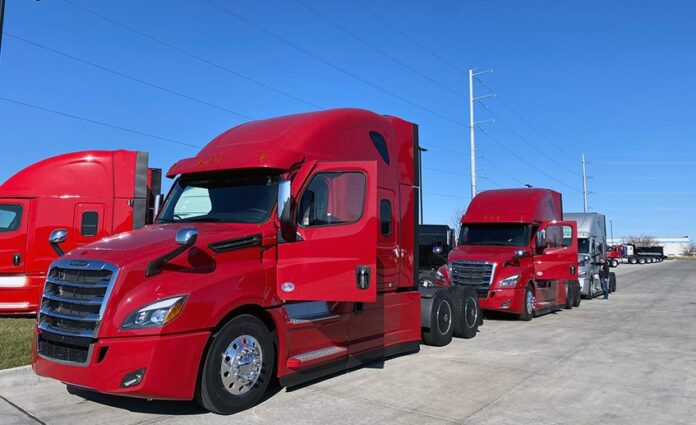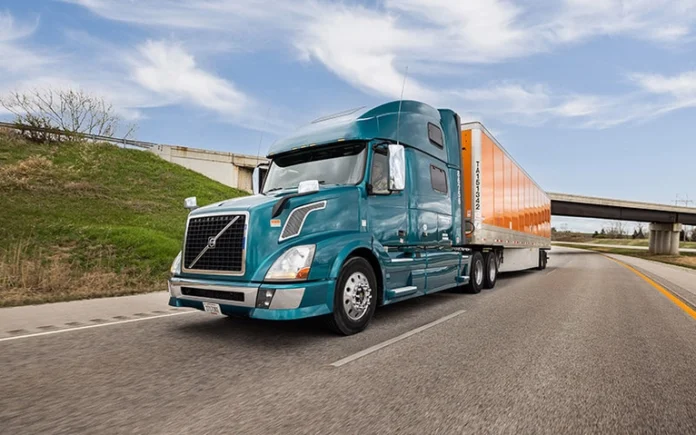In the vast and bustling world of trucking, there exists a group of professionals who wear multiple hats, juggle numerous responsibilities, and navigate the highways with a unique sense of ownership. They are known as owner-operators, and they play a pivotal role in the trucking industry. This article takes a deep dive into the world of owner-operators, exploring their significance, challenges, strategies for success, and the future of this dynamic profession.
The Role and Significance of Owner-Operators
Owner-operators are truck drivers who not only operate the rigs but also own and manage their trucks as independent business entities. They are the captains of their own ships, responsible for everything from maintenance to client acquisition. Their significance in the trucking industry cannot be overstated, as they provide flexibility, diversity, and a personal touch to the freight transportation landscape.
Market Trends and Statistics on Owner-Operators

To understand the world of owner-operators, it’s crucial to examine current market trends and statistics. According to recent data, the number of owner-operators in the United States has been steadily increasing. This rise can be attributed to factors such as the desire for greater independence and the potential for higher earnings.
Pros and Cons of Being an Owner-Operator
Like any profession, being an owner-operator comes with its own set of advantages and disadvantages. On the positive side, owner-operators have greater control over their schedules and earnings. They can choose the types of loads they transport and negotiate their rates. However, they also face challenges such as fluctuating fuel prices, maintenance costs, and the demands of running a business.
Challenges Faced by Owner-Operators
Owner-operators encounter several challenges in their daily operations. One of the most significant challenges is the financial burden of truck ownership. The initial purchase of a commercial truck can be a substantial investment, and ongoing costs, such as fuel, insurance, and maintenance, can quickly add up. Additionally, owner-operators must stay compliant with ever-evolving regulations and contend with the demands of the road.
Success Stories of Owner-Operators
Despite the challenges, many owner-operators have found success in the industry. Their stories often highlight the importance of perseverance, strategic decision-making, and adaptability. Whether through smart financial management, niche specialization, or exceptional customer service, these success stories offer valuable insights for aspiring owner-operators.
Regulatory and Compliance Issues for Owner-Operators
The trucking industry is heavily regulated, and owner-operators must navigate a complex web of rules and requirements. These regulations cover areas such as hours of service, vehicle maintenance, and safety standards. Staying compliant is not only essential for avoiding fines but also for ensuring the safety of the driver and the public.
Financial Aspects: Income, Expenses, and Profitability

The financial aspect of being an owner-operator is a critical consideration. Owner-operators must manage their income and expenses diligently. Understanding cash flow, budgeting for maintenance and repairs, and planning for unforeseen expenses are vital components of financial success in this profession.
Strategies for Managing a Successful Owner-Operator Business
To thrive as an owner-operator, it’s crucial to implement effective business strategies. These strategies may include building a strong client base, adopting efficient routing and scheduling, and investing in technology to streamline operations. Networking within the trucking community and seeking guidance from industry mentors can also be invaluable.
Future Outlook for Owner-Operators in the Trucking Industry
As technology continues to advance and the trucking industry evolves, what does the future hold for owner-operators? Automation and digitalization are changing the landscape, but there will always be a place for independent, entrepreneurial spirits in the world of trucking. Adaptability, a commitment to safety, and a focus on customer satisfaction will remain key factors in the success of owner-operators.
Personal Attributes of Successful Owner-Operators
Every owner-operator has a unique story, but certain characteristics are common among the most successful in the business. They display a remarkable sense of resilience, adaptability, and an unyielding work ethic. Beyond handling the mechanical aspects of their trucks, they are adept problem solvers, great communicators, and possess a deep understanding of the business aspects of trucking. Being forward-thinking, they often anticipate market changes and adjust their strategies accordingly.
Embracing Technological Advances
In today’s digital age, owner-operators who integrate technology into their operations often find themselves ahead of the curve. From advanced GPS systems that optimize routes to digital platforms that connect them with clients and track their shipments in real-time, technology can be a game-changer. These tools not only boost efficiency but also improve the safety and reliability of their services.
Environmental Considerations and Sustainability

With the global emphasis on sustainability, many owner-operators are looking at ways to reduce their carbon footprint. This includes investing in fuel-efficient trucks, adopting eco-friendly driving practices, and supporting initiatives that focus on cleaner transportation methods. As regulations around emissions become stricter, those who prioritize sustainability will likely find themselves better positioned in the market.
The Importance of Networking and Building Relationships
The trucking industry, vast as it is, thrives on connections. Successful owner-operators understand the importance of networking. Building strong relationships with clients, fellow truckers, and industry stakeholders can open up opportunities for business growth. Referrals, partnerships, and mentorships often emerge from these relationships, providing a support system that’s invaluable in this demanding profession.
Training and Continuous Learning
The trucking world is ever-evolving, and staying updated with the latest trends, regulations, and best practices is essential. Successful owner-operators often invest in regular training programs, seminars, and workshops. Continuous learning not only enhances their skills but also gives them a competitive edge in the market.
The Role of Family and Work-Life Balance
While the open road calls, home is where the heart is. Balancing the demands of being on the road with family life can be challenging. Many owner-operators often involve their families in business decisions, ensuring everyone understands the sacrifices and rewards. Prioritizing family and ensuring quality time, even in the midst of a hectic schedule, can be a cornerstone for long-term success and mental well-being.
Conclusion
Owner-operators are the unsung heroes of the trucking industry. They shoulder the responsibility of their rigs and businesses, navigating the challenges of the road and the demands of entrepreneurship. While the path may be challenging, the rewards can be significant for those who embark on this journey with determination and a passion for the open road. The world of owner-operators is not just about who’s behind the wheel; it’s about the dreamers, the doers, and the individuals who keep the wheels of commerce turning.







